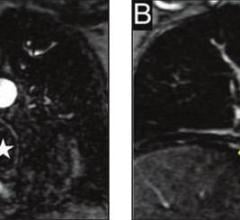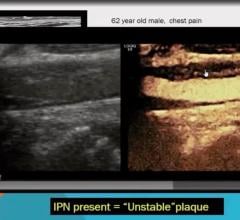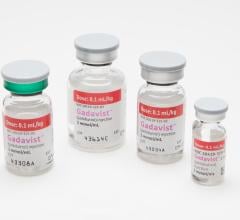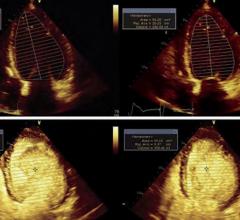August 28, 2012 — The International Contrast Ultrasound Society (ICUS) applauded the U.S. Food and Drug Administration’s (FDA) decision to modify the U.S. product label for Optison, an ultrasound contrast agent used to improve the accuracy of radiation-free ultrasound scans. Optison is marketed by GE Healthcare.
The label change was supported by a citizen petition filed by ICUS in October, citing newer scientific studies showing the superior safety profile of ultrasound contrast agents along with their favorable risk-benefit ratios. The citizen petition, which was granted in part by the FDA, also supported a prior modification of the label for Definity, an ultrasound contrast agent marketed by Lantheus Medical Imaging.
The FDA's actions are "an important step forward for patients and for our healthcare system," said Steven Feinstein, a cardiologist at Rush University Medical Center in Chicago and ICUS co-president.
Ultrasound contrast agents are administered intravenously during a noninvasive ultrasound scan to improve image clarity. The procedure does not expose patients to ionizing radiation, and ultrasound contrast agents do not contain dye or increase a patient's risk of nephrotoxicity, according to Feinstein.
"Ultrasound contrast agents are exceedingly safe and completely radiation-free diagnostic imaging tools," he said. "By improving the reliability of a simple front-line ultrasound scan, ultrasound contrast agents also may reduce the need for redundant, expensive and potentially riskier downstream testing — thereby improving patient care while also reducing the overall cost of diagnostic imaging."
The FDA's decision also will spare many patients from the cumulative effects of ionizing radiation that are inherent in certain alternative forms of diagnostic imaging, including SPECT (single photon emission computed tomography) and CT (computed tomography), according to Michael Main, cardiologist and director of the echocardiography laboratory at St. Luke’s Mid-America Heart Institute in Kansas City, Mo., and ICUS treasurer. "The FDA decision should lead to increased use of contrast, better imaging studies, better diagnosis for patients and saved lives," he said.
Main said that although the FDA retained boxed warnings on both ultrasound contrast agents, newer safety data demonstrate a more favorable risk-benefit profile that ultimately may warrant additional label changes with removal of the boxed warnings.
For more information: www.icus-society.org


 August 17, 2023
August 17, 2023 








